13 Healthy Foods That Boost Your Memory, According to Nutritionists
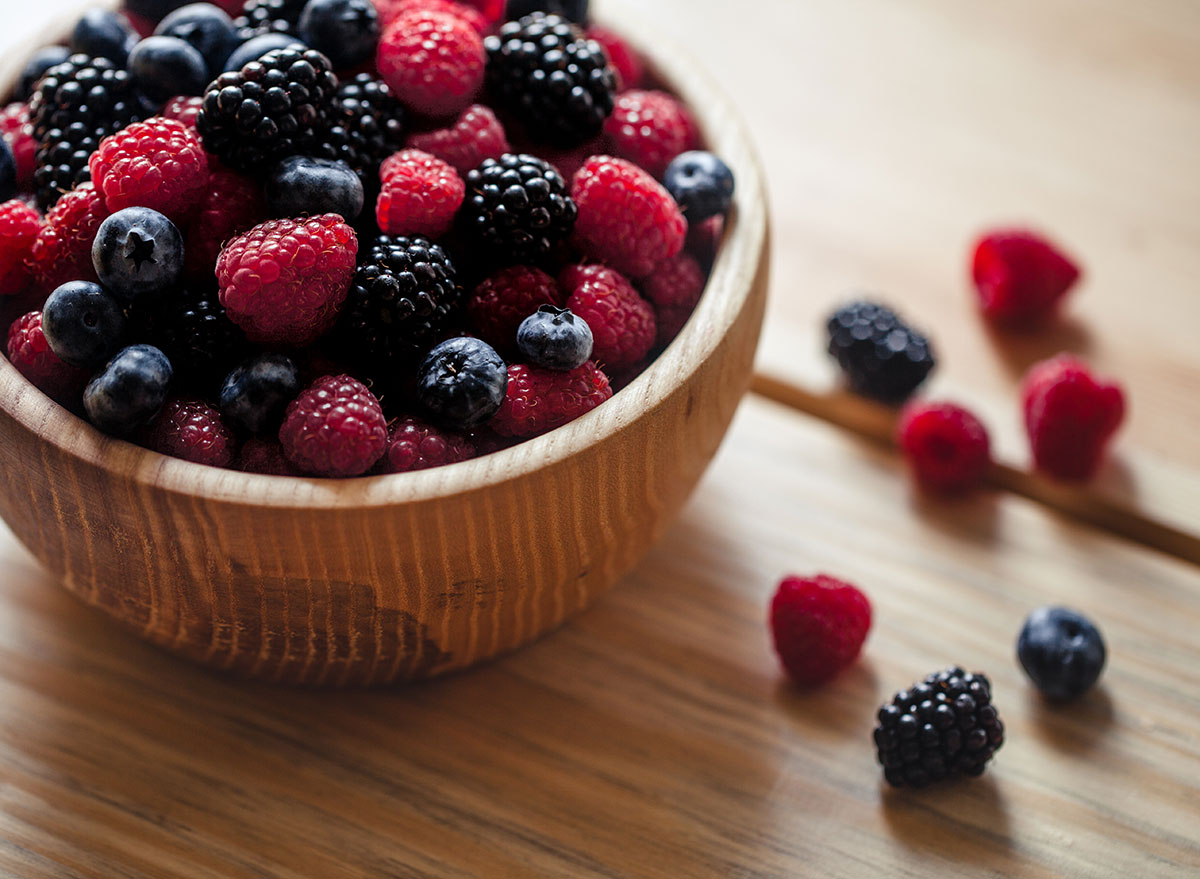
We've all had one of those days where it feels like our heads just aren't screwed on straight. It could be just because we're having an off day—or it could be because our diet is out of whack. By that, we mean that you might not be eating enough memory-boosting foods.
There are certain foods that are scientifically linked to better brain health and a stronger memory. "Foods that improve cognitive function include omega-3 fatty acids, medium-chain triglycerides (often found in coconut oil and palm oils), and vitamin D," says Shena Jaramillo, MS, RD, registered dietitian and founder of Peace & Nutrition. Other nutrients, such as antioxidants and certain minerals, have also been linked to a healthier mind.
On top of making sure your diet is rich in these brain-boosting foods, you can also strengthen and protect your mind by following a balanced diet with sustainable eating habits: "Other things that will prevent age-related memory loss can include ensuring to eat regular balanced meals/snacks throughout the day. This will help to keep blood sugars stable throughout the day and prevent lows in blood sugars. Repeated incidences of low blood sugar can be associated with memory loss," adds Jaramillo.
Grab a pen and a sticky note (it'll be one of the last ones you'll need), and jot down these nutritionist-approved healthy foods for memory to add to your grocery list. Read on, and for more on how to eat healthy, you won't want to miss these 21 Best Healthy Cooking Hacks of All Time.
Salmon
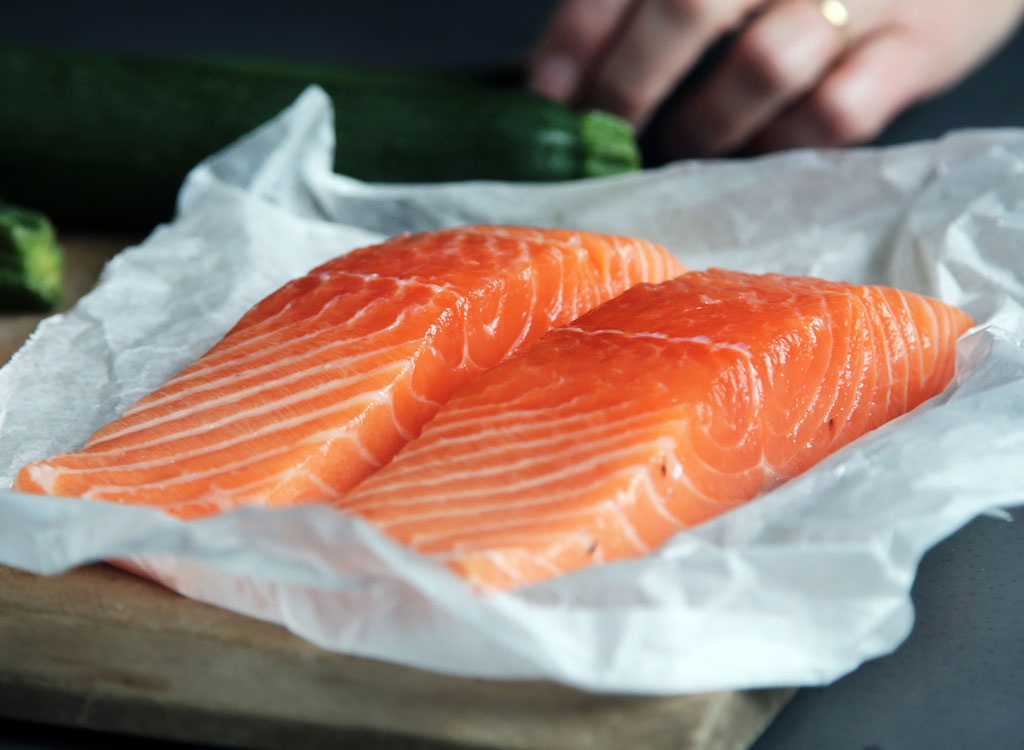
"Fatty fish are a great source of omega-3 fatty acids, which are the healthy fats that have been found to lower levels of beta-amyloid—the protein that forms plaques in the brains of patients with Alzheimer's disease," says Nicole M. Avena, PhD, a research neuroscientist at Mount Sinai School of Medicine. "Eating fish at least twice a week is your best bet, but you want to choose varieties that are low in mercury. Chilean-farmed salmon is a great option because it is rich in omega-3's and it also contains no mercury. Other options include cod or canned light tuna."
"If seafood isn't your thing, consider an omega-3 supplement derived from algae," recommends registered dietitian Danielle Schaub, MSPH, RD, the Culinary & Nutrition Manager for Territory Foods. She notes that while there are many plant-based sources of omega-3s, these do not contain DHA: a type of omega-3 fatty acid that is a building block in the cells of the brain and nervous system.
Berries
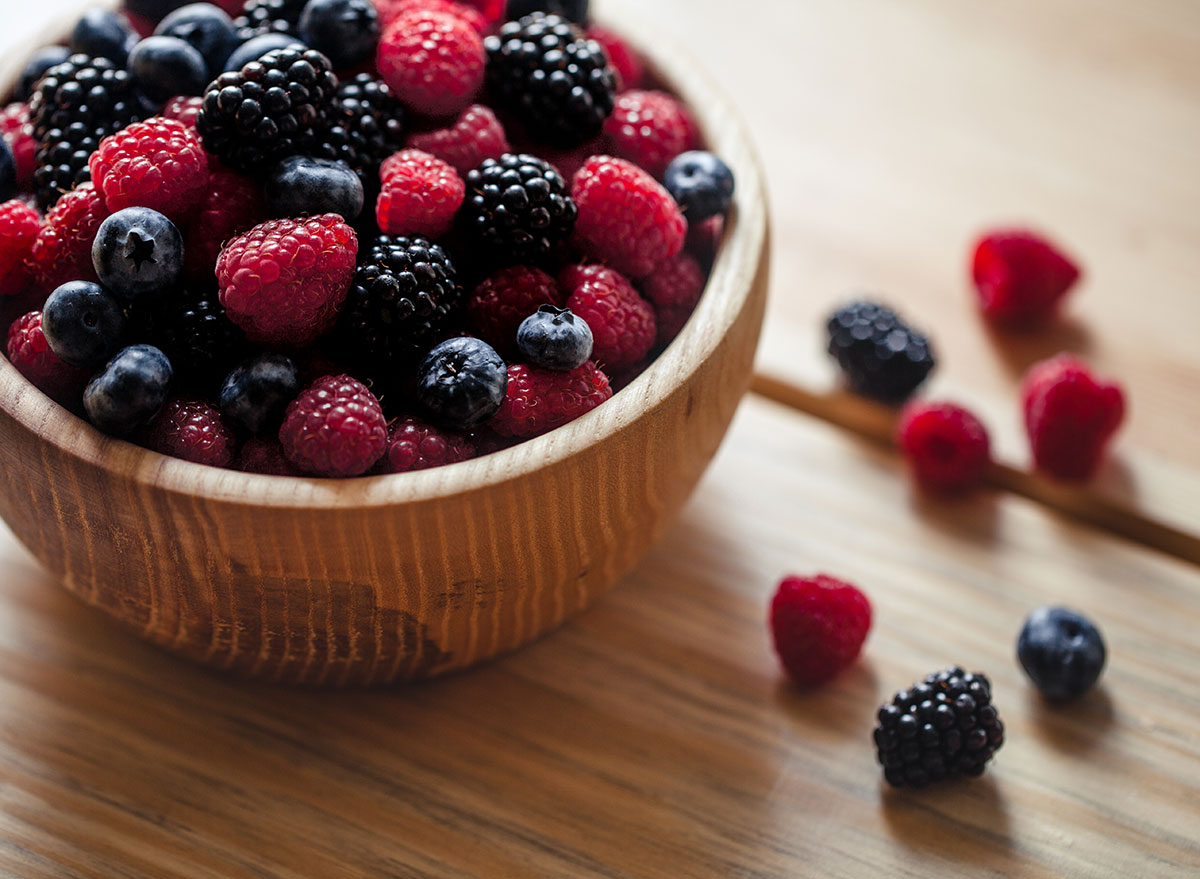
"Berries improve cognitive function and significantly slow down brain aging. Berries are neuroprotectors because they are packed with antioxidants, which clean up the wrecking-ball-like free radicals that float around the brain and cause damage," says Schaub.
Blueberries, in particular, have been shown to improve memory. "Berries contain anthocyanins, a group of phytonutrients well studied for their cognitive benefits. Research shows that women who ate one or more servings of blueberries per week performed better on memory tests and delayed their overall cognitive aging by 2.5 years," says Amylee Amos MS, RDN, IFMCP, registered dietitian and founder of The Amos Institute.
Fermented Foods

"Our brain and gut are intimately connected. Serotonin, the 'happiness' hormone, is actually produced by bacteria in our gut. If the gut microbiome gets unbalanced by inflammation or a poor diet, it has a direct impact on the neurotransmitters that are produced by the brain and can contribute to Alzheimer's, dementia, and other cognitive conditions. A growing body of research has shown that fermented foods improve brain function because of this impact on the production of neurotransmitters. Fermented or probiotic foods include kombucha, yogurt, kefir, kimchi, and sauerkraut. Foods high in fiber can also promote a healthy gut, and that includes vegetables, fruits, legumes, and whole grains," says Schaub.
Related: 14 Tips to Reduce Inflammation to Lose Weight Faster, According to RDs
Coffee

"Most of us rely on caffeine to wake up in the morning, but studies have found that in addition to the temporary concentration boost, caffeine may actually help the brain solidify new memories. Caffeine acts a psychostimulant, meaning it speeds up information processing. Research has found that this effect lasts well beyond finishing the cup and increases the brain's capacity to process information even at rest. The result is improved cognitive performance. Other studies have found that caffeine protects against the toxins that build up in the brain during the day while we are awake," says Schaub. For more, check out What Happens To Your Body When You Drink Coffee.
Green Tea

"Catechins in green tea are thought to be the reason why this traditional beverage supports memory. Long-term green tea consumption is associated with improved memory, executive function, and processing speed," says Amos.
"There is a wealth of research which supports the positive contribution of tea drinking to cognitive function," adds registered dietitian Samina Kalloo, RDN, CDN. "One 2019 study in the journal Aging offered the first evidence suggesting that habitual tea drinking has a protective effect on age-related cognitive decline and brain organization. Another study, published in the American Journal of Geriatric Psychiatry concluded that frequent green tea consumption (of 5 cups of green tea daily) was associated with a lower risk for incident dementia. Research has also revealed that green tea improves all-around brain health and specifically influences cognition (benefits in memory and attention), psychopathological symptoms (reduction of anxiety), and brain function (activation of working memory seen in functional MRI)."
Nuts & Seeds
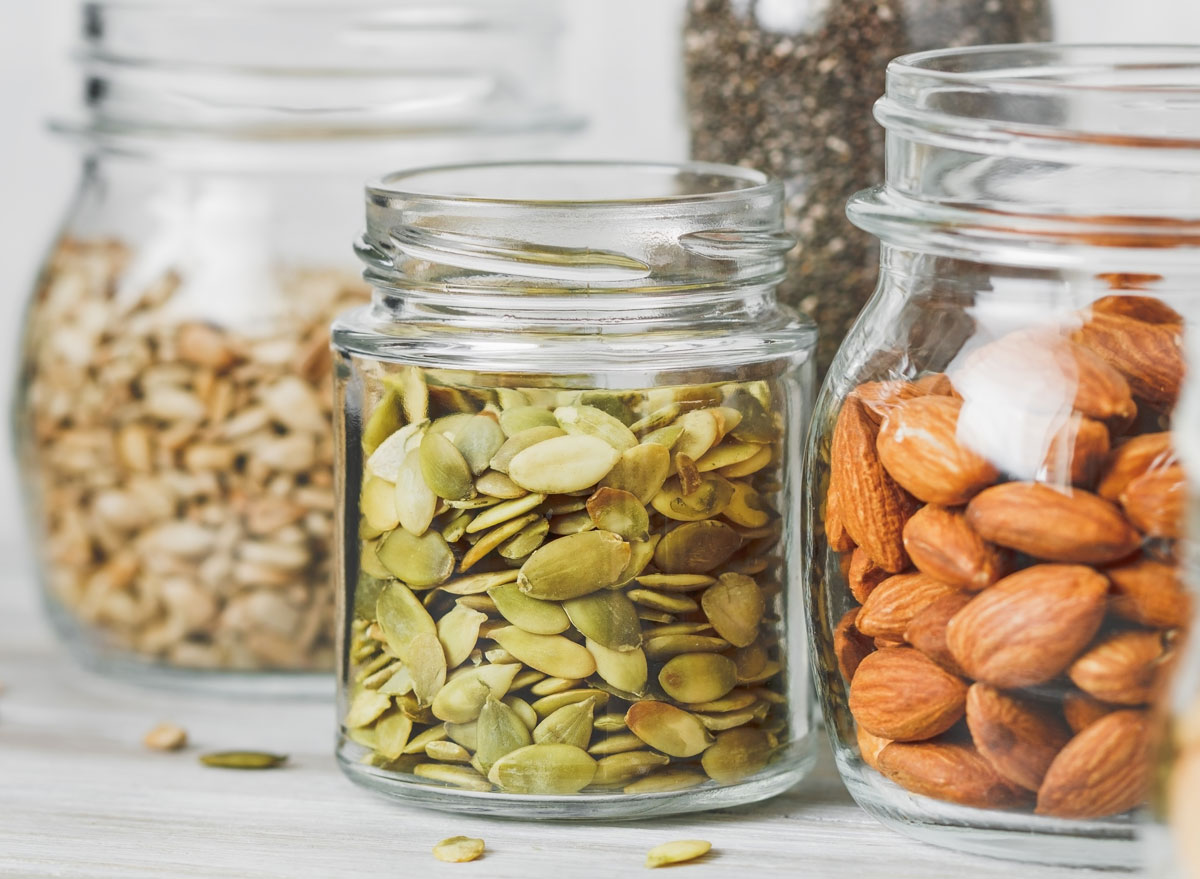
"Magnesium is a mineral found naturally occurring in the earth as well as the human body. It is vital to life as it is contained in every cell of the body and important for carrying out many bodily functions. This mineral is important for brain health as well. It not only works within the brain for mood and cognitive support, but also outside of the brain in the blood vessels. It acts as a vasodilator to dilate the vessels which increases blood flow to the brain. Magnesium-rich foods and supplements are both ideal for taking in more of this nutrient," says Trista Best, MPH, RD, LD a registered dietitian at Balance One Supplements.
Some foods rich in magnesium include tofu, nuts, avocado, legumes, and dark chocolate, but one of the best sources is pumpkin seeds—which is a super brain booster. In addition to magnesium, "Pumpkin seeds are also packed with brain-boosting nutrients like unsaturated fatty acids, antioxidants, zinc, copper, and iron," says Bri Bell, RD a registered dietitian with Dietitian Directory. "Being deficient in any of these nutrients can cause a decline in brain function over time. Eating foods rich in these nutrients helps ensure you get enough in your diet."
Dark Chocolate

"Dark chocolate is rich in flavonoids, which are strong antioxidants and anti-inflammatory compounds. Studies show dark chocolate can help improve learning and memory, increase blood flow to the brain, and protect brain cells (a.k.a. neurons). Aim for dark chocolate with at least 70% cacao," says Megan Wong, RD, a Registered Dietitian working with AlgaeCal.
Water

"Did you know your brain is composed of ~75% water? Which is why it's not surprising that dehydration is shown to impair short-term memory, attention, and decision-making in research studies," says Wong.
MCT Oil
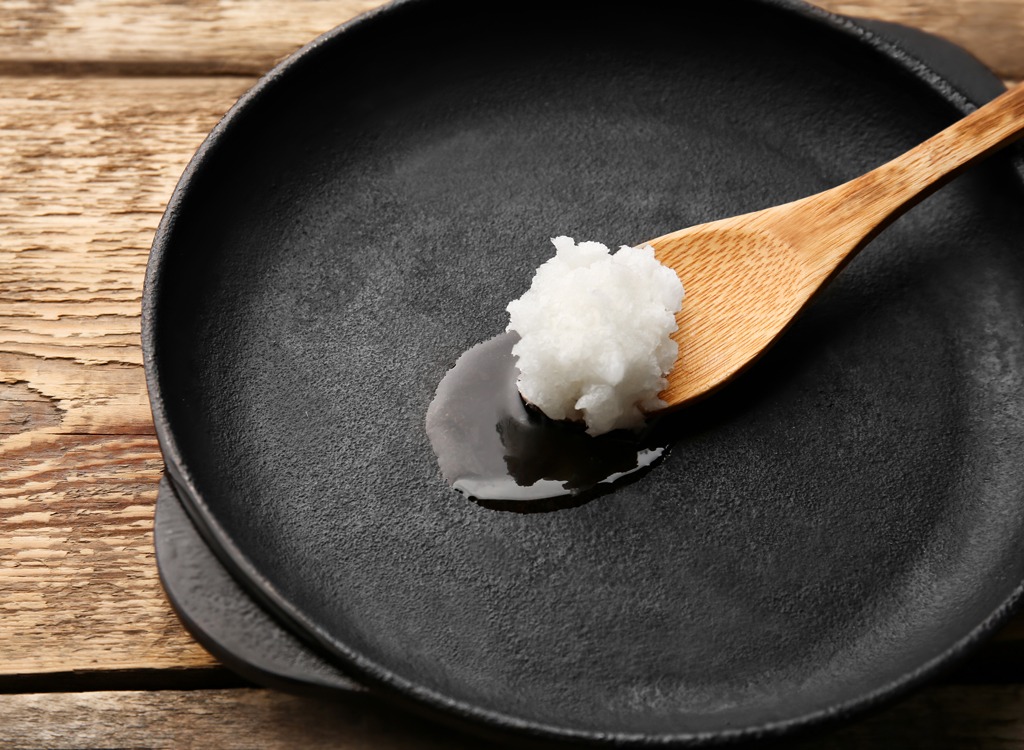
"Medium Chain Triglyceride, also known as MCT, is a type of fat found naturally in coconut and used in food products like IQBAR to provide unique brain-related health benefits. Studies show MCT fats may be able to improve short-term memory and improve attention and learning ability," says registered dietitian Melissa Rifkin, MS, RD, CDN.
Eggs

"Eggs are rich in choline, a nutrient that is essential in aiding in nerve cell transmissions. Additionally, choline is thought to aid in memory and help maintain the structural integrity of brain cells. Research also indicated choline may help increase attention and focus," says Rifkin.
Beets
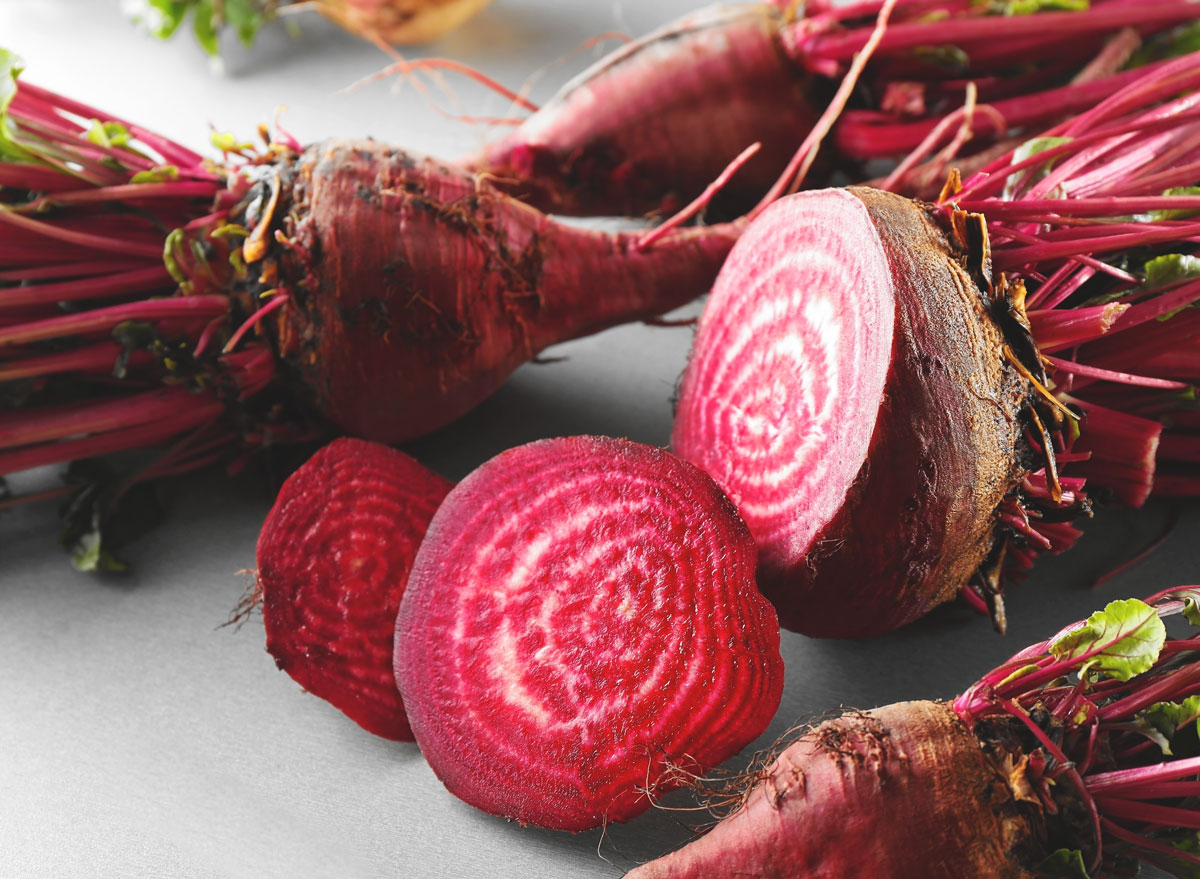
"While more research is needed, it's possible that beets can support cognitive health by increasing blood flow to the brain. In one study looking at older adults, a high nitrate diet (which included 2 cups of beet juice in the morning) was linked to increased blood flow in an area of the brain that's crucial to working memory," says Wong.
Walnuts

"Walnuts are a plant-based source of omega-3s. Walnuts also contain antioxidants, vitamin E, polyphenols, and other nutrients that may decrease the oxidative damage or inflammation to the brain and improve brain health," says Jennifer Glockner, RDN, a registered dietitian nutritionist and creator of Smartee Plate, an interactive nutrition e-book series for kids. "They may reduce the progression of dementia and other diseases such as Parkinson's. Walnuts improve blood flow to the brain and are heart-healthy, too." Enjoy walnuts as a snack on their own or add them to cereals, salads, and yogurt, she suggests.
Avocado
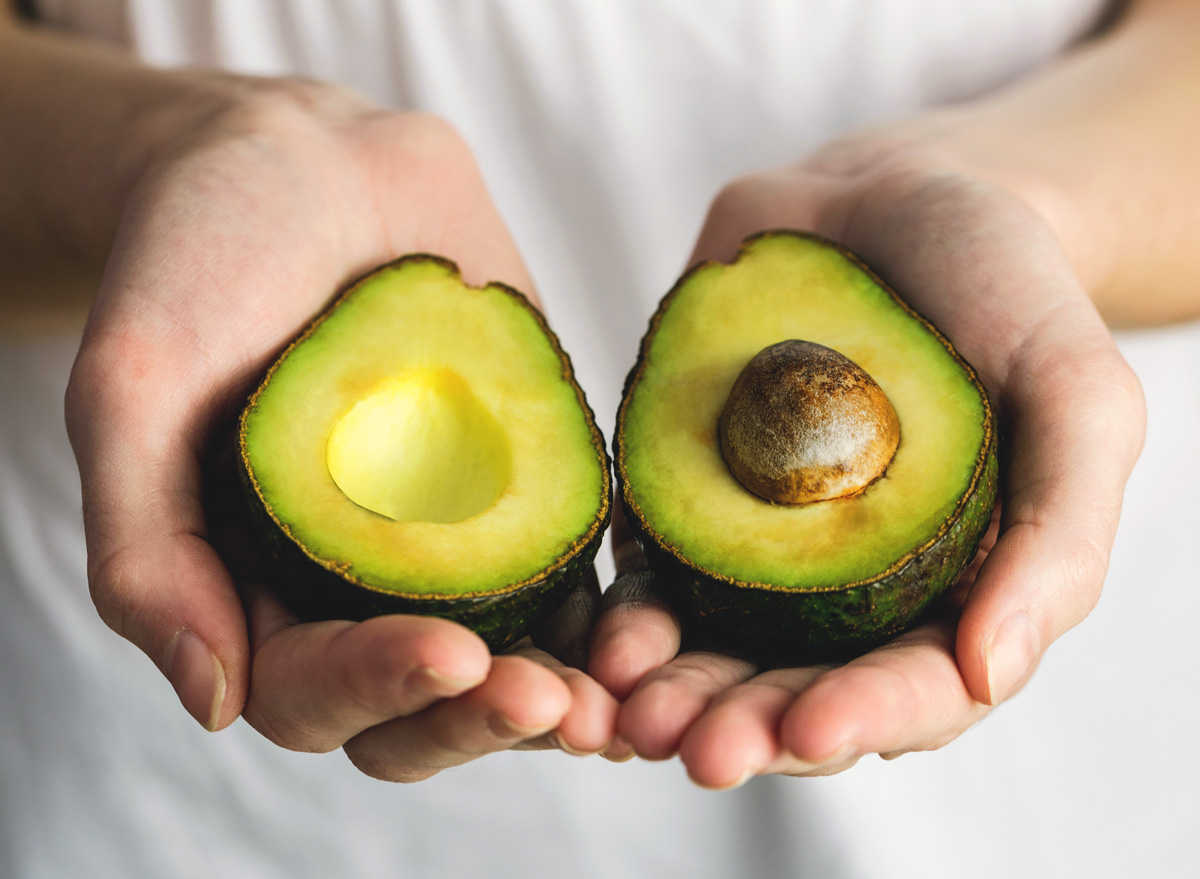
"Avocados contain monounsaturated fats, which are heart-healthy, but they are also beneficial to the brain. They may reduce blood pressure and improve blood flow to the brain, which in turn, may enhance brain function. Avocados also contain antioxidants including carotenoids, vitamins C and E, which may help reduce inflammation and boost memory," says Glockner. It's why you'll often see avocados used as an ingredient in The 13 Healthiest Breakfasts To Have, According to RDs.








